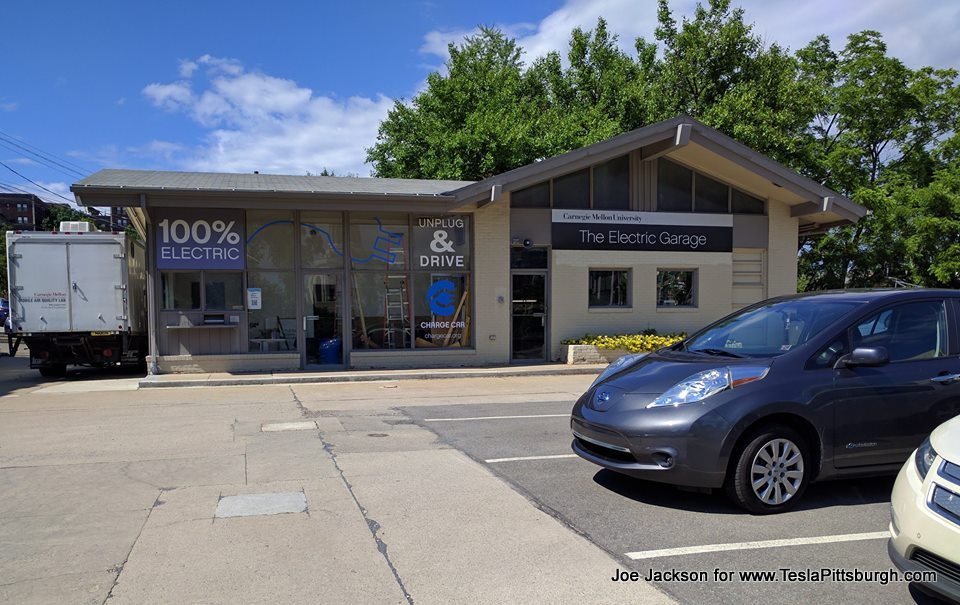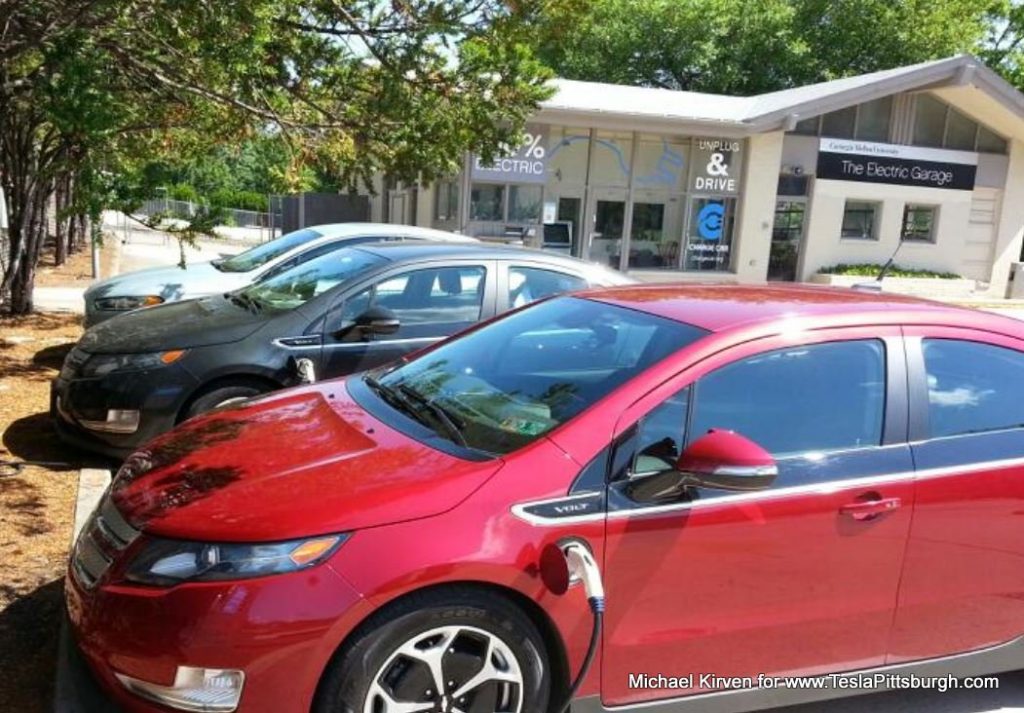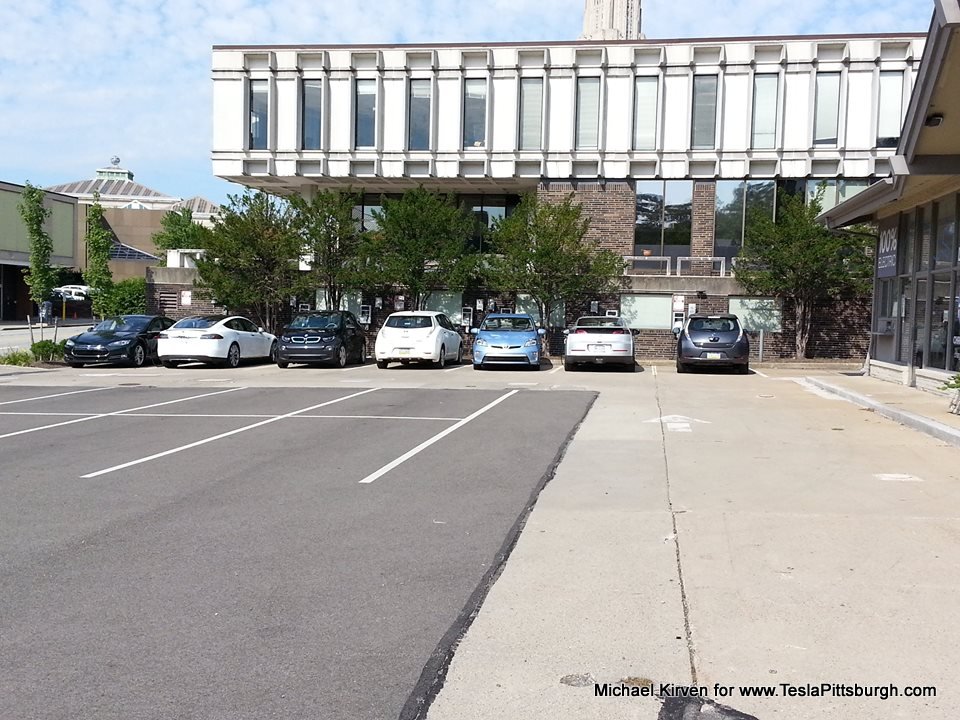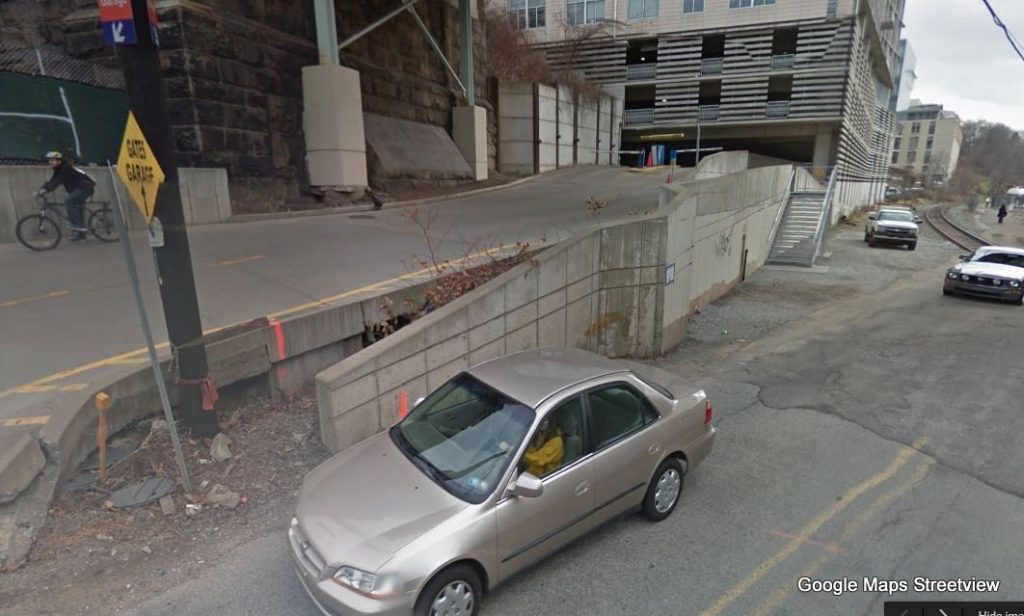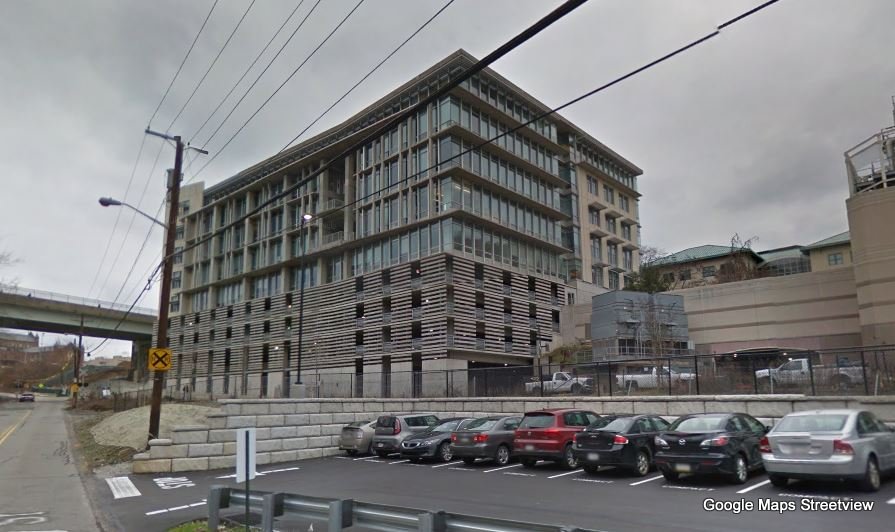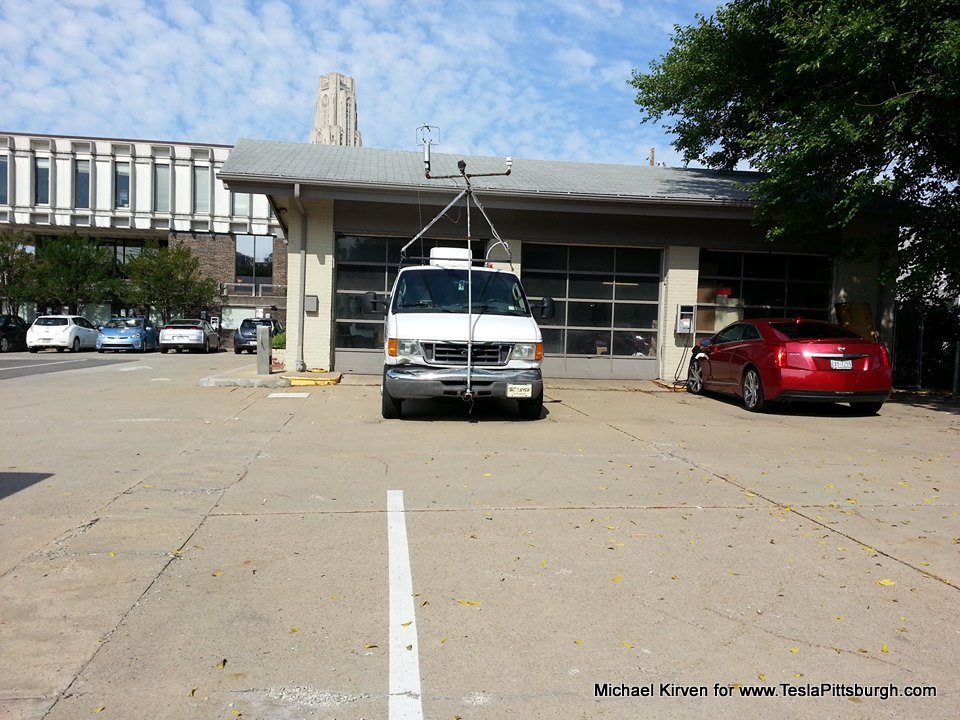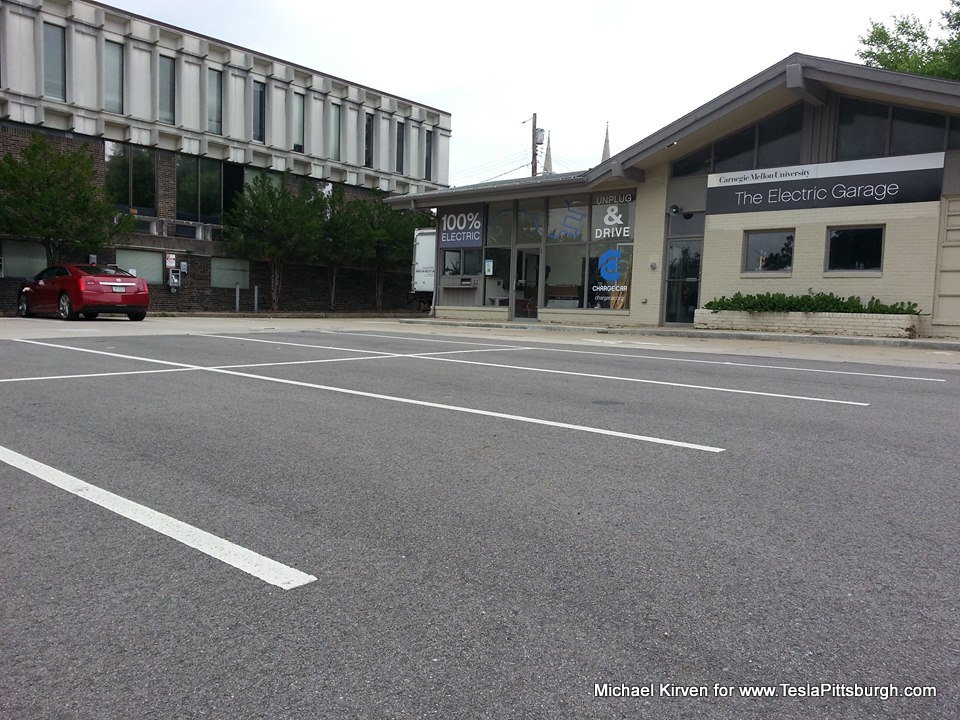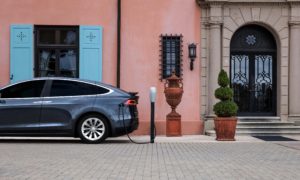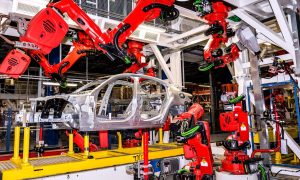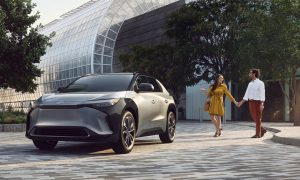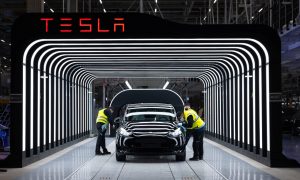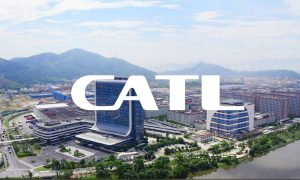News
Tesla destination charging facility, also Pittsburgh EV landmark will be demolished
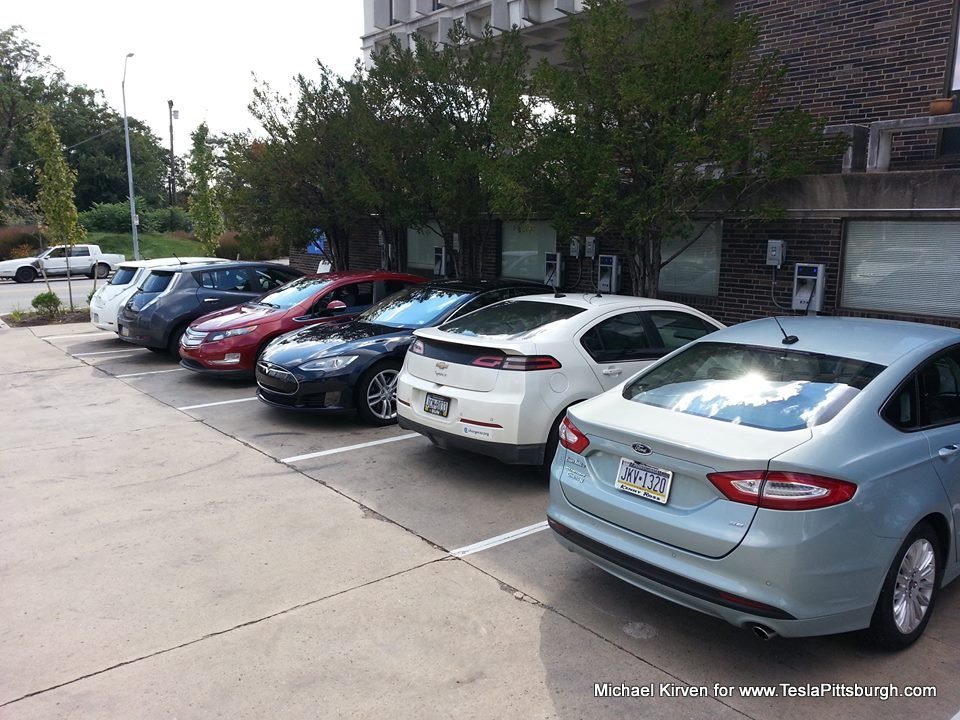
Vast construction projects at Pittsburgh’s Carnegie Mellon University will soon engulf a site that became a landmark in the development of electric vehicles in western Pennsylvania. It was a pioneering facility and the largest charging site in the region for many years.
The Electric Garage’s chargers are being relocated immediately with demolition of the site to begin in July.
At its peak, the Electric Garage boasted eight J1772 Level 2 chargers offering 203V at 30 amps. In 2014, a Tesla HPWC with 40 amp charging was added. Charging and parking was free to the public for up to four hours a session– a welcome oasis in the otherwise congested and paid parking of Oakland. It was easily the largest charging site in western Pennsylvania for most of its life and was open 24 hours/7 days a week on a first-come, first-serve basis. Non-charging parking spots on the site were marked as permit only.
The original six Eaton chargers were installed in 2012, using funding provided from the Pennsylvania Department of Environmental Protection’s Office of Energy and Technology Deployment which had a special mandate from the Office of Acronym Abatement at the Bureau of Ridiculously Long and Expansive Government Agency Naming Commission Department.
Originally built as an Exxon gas station, the Electric Garage was the invention of CMU robotics professor Illah Nourbakhsh. The university bought the property in 2009 and Nourbakhsh transformed it soon after into the workshop for the ChargeCar program. ChargeCar worked to further and develop EV technology, converting several vehicles and working out designs for regenerative braking. The industry’s pace of development soon overran much of ChargeCar’s work as more manufacturers brought EVs into mass production.
Undaunted, ChargeCar hosted numerous community outreach events to showcase the everyday feasibility of EVs to the general public. The site then morphed into a charging station and ChargeCar moved from primarily making gas-electric conversions to educating local mechanics in how to repair EVs.
Notice of the Electric Garage’s potential demise first bubbled up in May 2014, just months after the Tesla HPWC was installed. For several years, Tesla would use the Electric Garage as their main charging facility for Pittsburgh Test Drive events. There was no official Tesla presence in the city and Superchargers were too far from downtown. The proximity of the Electric Garage to the test drive events’ hosting facilities and hotels (and its number of chargers) made it an ideal overnight parking area for a small fleet of Teslas, hungry after a day of being pummeled by curious Pittsburghers.
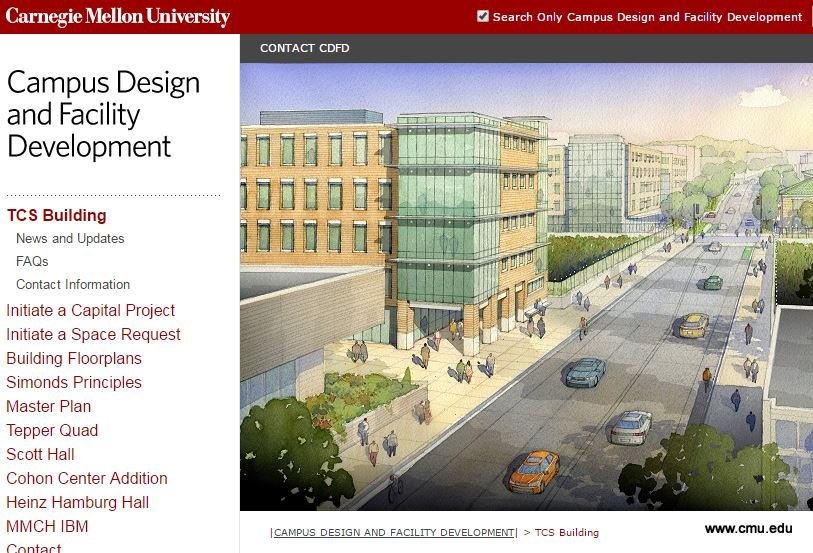
Taking the place of the Electric Garage will be CMU’s new Tata Consultancy Services (TCS) Building. The 40,000 square foot structure is designed by Skidmore, Owings & Merrill and will be built by Mascaro Construction. CMU described the new mixed-use building as “a new home for the university stores, a dining facility on the ground floor, and academic or administrative office and shelled space. The stand-alone structure will house state-of-the-art facilities, providing collaborative spaces for the CMU community.” CMU expects to spend $22.5 million on the project, which should break ground late this year.
Demolition of the Electric Garage will take place in July. The university has indicated that the chargers will be relocated to other places on campus, though EV drivers will likely have limited access the parking garages that will house some of them. It is also unlikely that all of those will remain available to the general public.
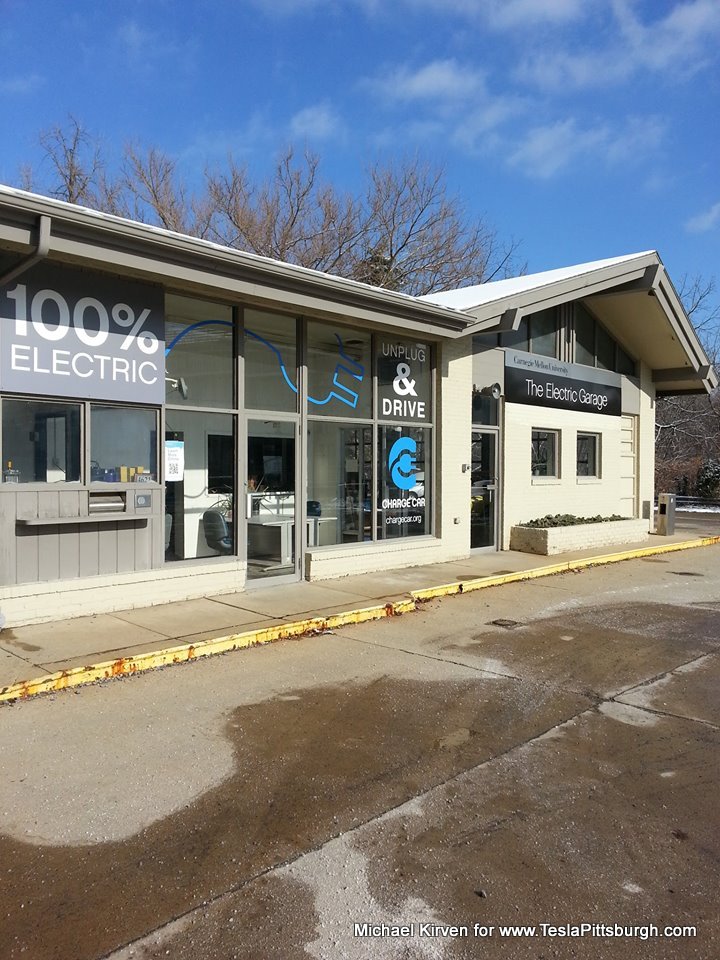
Current plans are as follows: 2 chargers move to the East Campus Garage, 2 chargers to the Dithridge Garage and the CIC Garage will have 5 stations.
If any are publicly available, it would most likely be the 5 chargers at the CIC garage. The notice from CMU Parking & Transportation Services indicates that these 5 chargers “will be located on the outside prior to entering the garage.” Given the awkward placement of the garage in relation to the campus and nearby train tracks, that could be interpreted a number of different ways. The approach roads to the garage are narrow, but there could be room for creative placement and there is a more hospitable lot close by. It also seems probable that the Tesla HPWC could be reappearing at this location. CMU has not yet responded to requests for clarification.
The passing of the Electric Garage “era” is lamentable, but CMU’s commitment to relocate the chargers is to be commended. Many businesses would have simply shoved them into a warehouse (or worse). It is an unfortunate development for EV drivers who have enjoyed both free parking and charging in Oakland, but with CMU’s inherent focus on technology there is hope for more charging stations in the future.
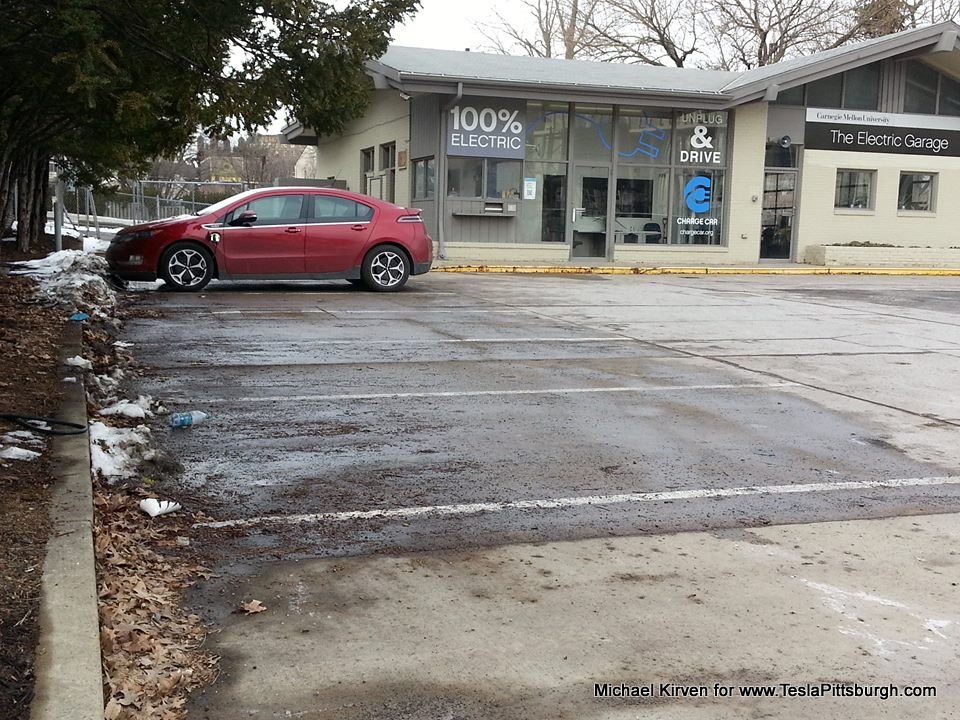
For local Tesla owners, the chargers were more about convenience than necessity. Long distance travelers are similarly unaffected by the change for the most part (ever since the Somerset and Cranberry Superchargers went online). With the opening of Ross Park Mall’s Tesla store this summer– complete with outdoor HPWCs– and the expected opening of a Pittsburgh Service Center later this year, there is also no longer a need for test drive fleets to recharge overnight in Oakland.
Elon Musk
Tesla confirms rollout of critical feature, but Cybertruck misses out
Tesla’s S3XY lineup will get the Adaptive Headlights, but Cybertruck will not.
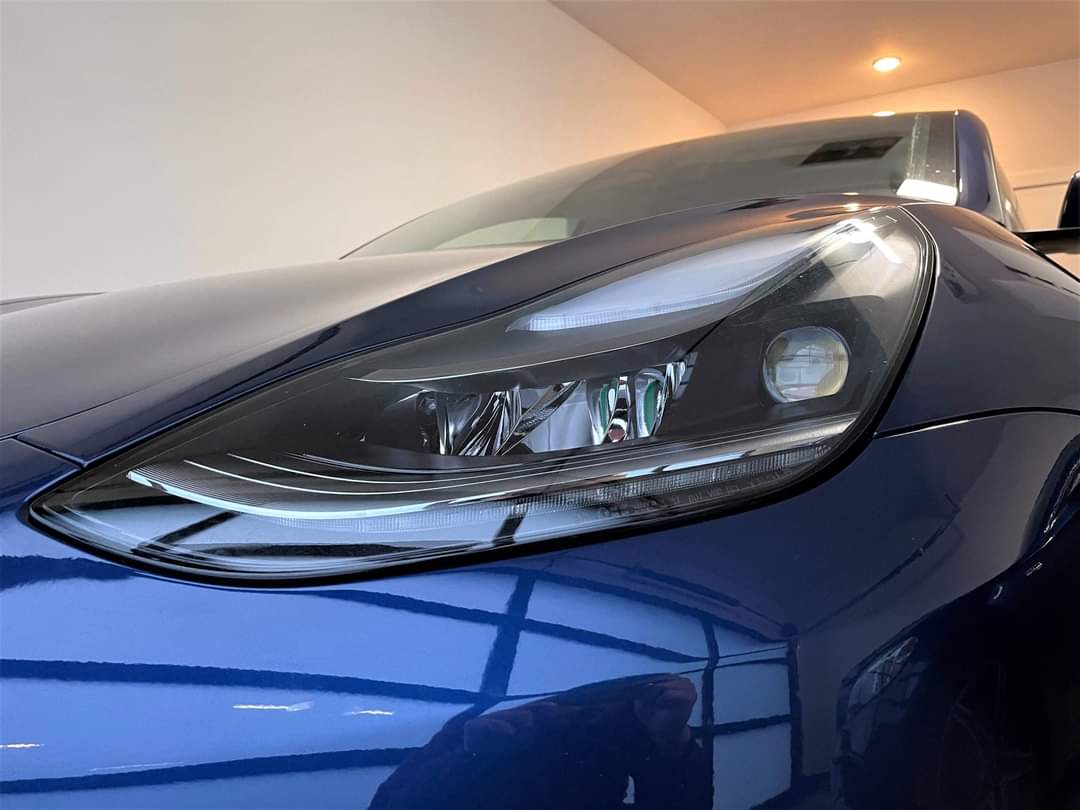
Tesla has confirmed the rollout of a new, critical feature that is coming to the United States for the first time.
However, the Cybertruck will unfortunately miss out on it.
Tesla has a distinct advantage among many automakers as their Over-the-Air updates make their vehicles better over time. While many automakers have the ability to roll out new features through these updates, Tesla has been shown to be one of the companies that can truly make things significantly better with their cars.
A new feature coming to the United States and now rolling out is Adaptive Headlights. This feature will be applied to Model S, Model 3, Model X, and Model Y vehicles with the proper hardware.
Adaptive Headlights are different than your typical auto highbeams in the way that they can dim certain pixels of the bulb to keep visibility for the Tesla driver high, while eliminating glare for those who are in oncoming cars:
🚨 Tesla’s Adaptive Headlights dim only select pixels of the bulb to increase visibility for all drivers, while keeping brightness at a maximum for you
Perhaps one of the coolest features around
— TESLARATI (@Teslarati) April 17, 2025
For the first time, Tesla is rolling out the feature to these vehicles in the United States. European Tesla owners were able to use the function several months back, but it was pending approval in the U.S.
At first, Tesla VP of Vehicle Engineering, Lars Moravy, said that the Cybertruck would have this feature. However, in late February, he confirmed that he was incorrect and the all-electric pickup will not have the ability to get Adaptive Headlights, as the company could not fit the correct hardware in the Cybertruck’s module:
@wmorrill3 is right – I was a little overzealous and my memory failed. S/X/3/Y have it – but those thin little headlight modules in CT, just couldn’t get it in there.
— Lars (@larsmoravy) February 28, 2025
The feature certainly makes visibility better for everyone on the road and will improve overall safety while eliminating the pesky and annoying feeling of being blinded by high beams.
The Adaptive Headlight feature for Tesla is part of the company’s Spring Update for 2025.
Elon Musk
Tesla Model 3 wins ‘most economical EV to own’ title in new study
The Tesla Model 3 has captured another crown in a recent study showing the most cost-effective EVs
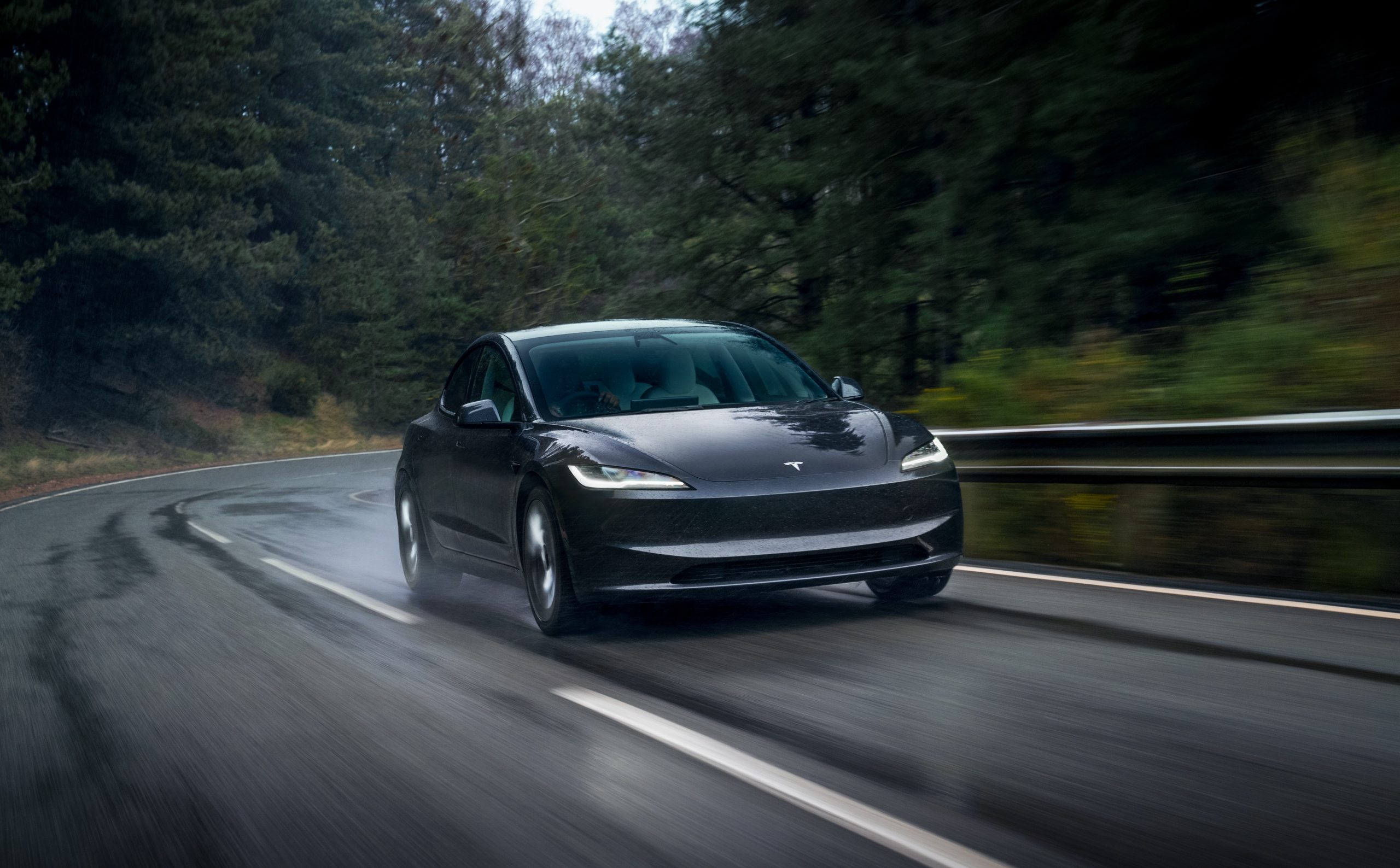
The Tesla Model 3 recently captured the title of “most economical electric vehicle to own” in a new study performed by research firm Zutobi.
Perhaps one of the biggest and most popular reasons people are switching to EVs is the cost savings. Combining home charging, lower maintenance costs, and tax credits has all enabled consumers to consider EVs as a way to save money on their daily drivers. However, there are some EVs that are more efficient and cost-effective than others.
Tesla police fleet saves nearly half a million in upkeep and repair costs
Zutobi‘s new study shows that EV cost-effectiveness comes at different levels. For example, some cars are simply better than others on a cost-per-mile basis. The study used a simple process to determine which EVs are more cost-effective than others by showing how much it would cost to drive 100 miles.
National averages for energy rates have been used to calculate the cost as they widely vary from state to state.
The Rear-Wheel Drive Tesla Model 3 was listed as the most economical vehicle in the study:
“The standard Tesla Model 3 is the most economical electric vehicle to drive in 2025. With a usable battery capacity of 57.5 kWh and a real-world range of 260 miles, it costs just $3.60 to drive 100 miles. That translates to an impressive 2,781 miles per $100 of electricity—making it the most efficient choice for EV owners nationwide.”
It had an estimated cost of just $3.60 to drive 100 miles.
The Tesla Model 3 Long Range All-Wheel Drive was second, the study showed:
“Next is the Long Range version of the Model 3, which offers extended range and dual-motor all-wheel drive. With a larger 75 kWh battery and 325 miles of range, the cost to drive 100 miles is slightly higher at $3.75, still equating to a strong 2,665 miles per $100.”
This version of the Model 3 had a price of just $3.75 to drive 100 miles.
In third, the BMW i4 eDrive35 surprised us with a cost of just $4.12 to drive 100 miles:
“Rounding out the top three is the BMW i4 eDrive35, with a 67.1 kWh battery and a real-world range of 265 miles. Drivers can expect to pay $4.12 per 100 miles, which still allows for 2,429 miles per $100—a solid choice for those seeking luxury and efficiency.”
Several other Teslas made the list as well. The Model 3 Performance ($4.34 per 100 miles) was sixth and tied with the Volkswagen ID.3 Pure, the Tesla Model S Long Range ($4.35 per 100 miles) was 8th, and the Tesla Model Y Long Range was ninth ($4.36 per 100 miles).
Elon Musk
Tesla offers new discounts on Cybertruck inventory
Tesla is knocking up to $10,550 off of Cybertruck units in inventory
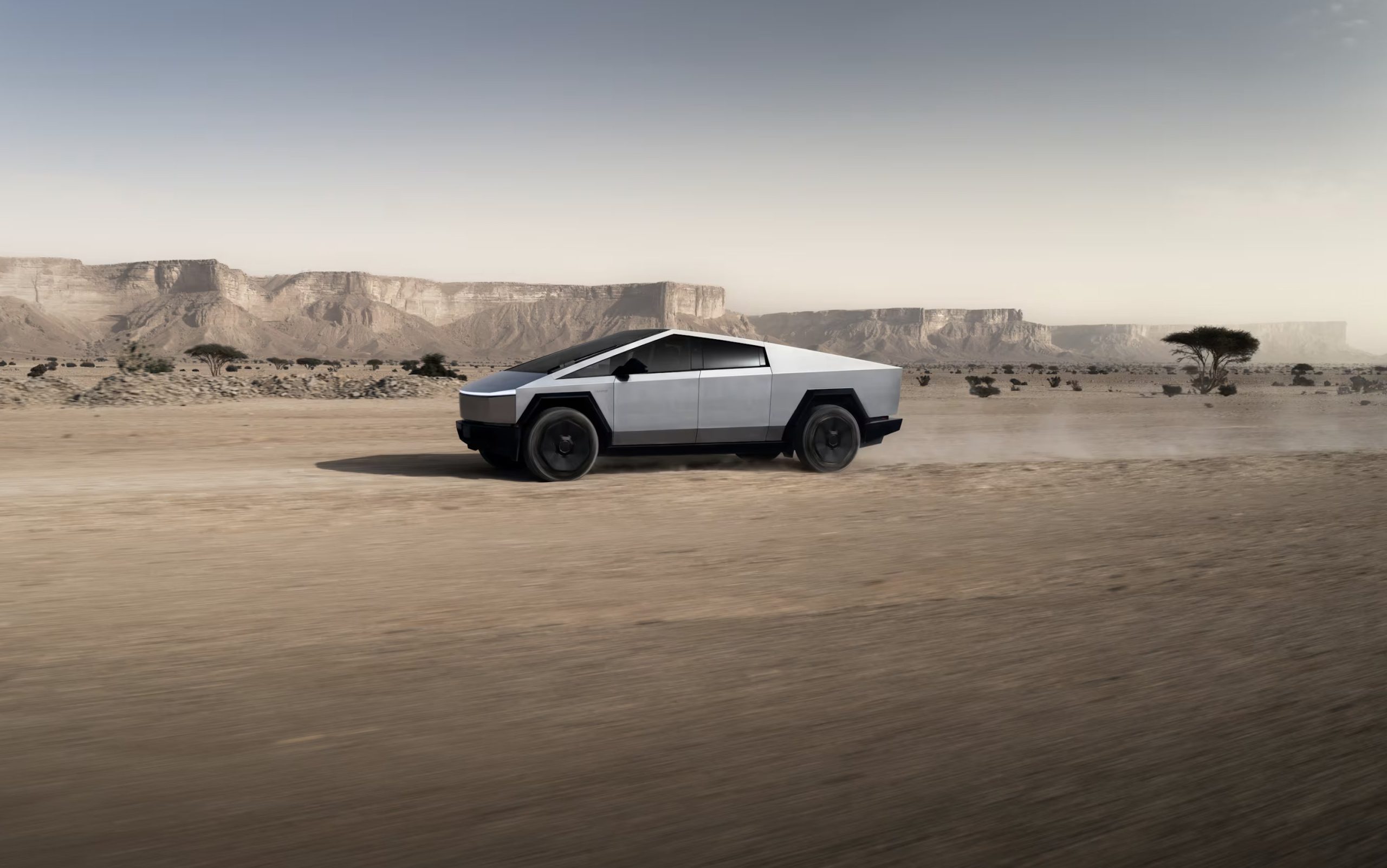
Tesla is offering new discounts on Cybertruck units in inventory, giving customers a chance to snag a unit of the all-electric pickup for a slight reduction in price. Some are even coming with additional perks to make the offer even sweeter.
Tesla is now offering up to $10,550 off of Cybertruck inventory units across the United States. This is up from previous discounts of $6,000 on inventory Cybertrucks, and it will apply to 2024 model year vehicles.
Non-Foundation Series Cybertrucks are getting up to $10,550 off of their original prices, while Foundation Series pickups are getting up to $10,000 off. These are great deals and should help clear out some inventory from last year’s models.
Additionally, Foundation Series Cybertrucks purchased will receive free lifetime Supercharging, another great addition to make the deal even better than the $10,000 off.
NEWS: Tesla is now offering new Cybertruck inventory discounts in the U.S. of up to $10,550 off, up from $6,000 before.
• Non-Foundation Series (2024 model year): Up to $10,550 off
• Foundation Series (2024 model year): Up to $10,000 offAnyone who purchases a new Cybertruck… pic.twitter.com/8oGT6R2DDp
— Sawyer Merritt (@SawyerMerritt) April 17, 2025
The move comes as Tesla is still ramping Cybertruck production and is hoping to stimulate some additional demand for the vehicle, as it is holding on to these units. These are not Demo Drive units that have been driven by any number of people who were looking for a quick test drive.
Tesla launched a new configuration of the Cybertruck just last week with the Long Range Rear-Wheel-Drive, which undercuts the All-Wheel-Drive option by roughly $10,000.
Tesla released the Cybertruck RWD to make the AWD look like a deal
However, Tesla stripped the vehicle of several features, including Air Suspension, a tonneau cover, and interior features. For example, the Rear-Wheel-Drive trim of the Cybertruck has textile seats and no rear touchscreen, two things that come standard in the other trim levels.
The Cybertruck is the best-selling electric pickup in the United States, outperforming formidable competitors like the Ford F-150 Lightning and Chevrolet Silverado EV. However, Tesla is still working to get the vehicle to a lower price point that makes it more accessible to consumers, as its current pricing is a far cry from what was intended.
-
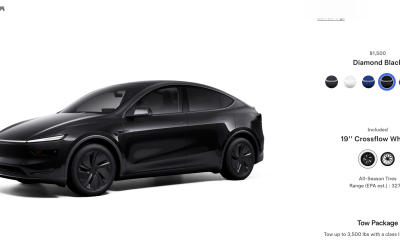
 News2 weeks ago
News2 weeks agoTesla rolls out new, more affordable trim of the Model Y Juniper in U.S.
-
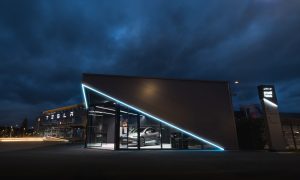
 Elon Musk2 weeks ago
Elon Musk2 weeks agoTesla Germany reports 4,935 units sold in Q1 2025
-
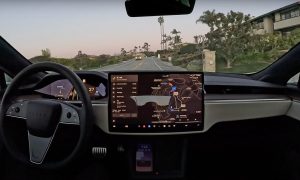
 News2 weeks ago
News2 weeks agoTesla expands Early Access Program (EAP) for early Full Self-Driving testing
-
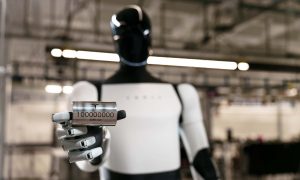
 News2 weeks ago
News2 weeks agoTesla celebrates key milestone for 4680 battery cell production cost
-

 News2 weeks ago
News2 weeks agoElon Musk will continue as DOGE adviser: VP Vance
-

 Elon Musk2 weeks ago
Elon Musk2 weeks agoNeuralink’s Patient Registry is now open globally
-
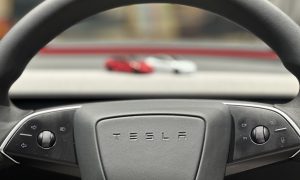
 Investor's Corner2 weeks ago
Investor's Corner2 weeks ago“Nothing Magnificent about Tesla (TSLA),” claims Jim Cramer
-
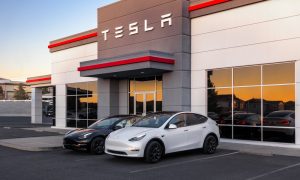
 Elon Musk2 weeks ago
Elon Musk2 weeks agoThis Tesla vandal caused thousands in damage, but she was let off the hook: Here’s why

